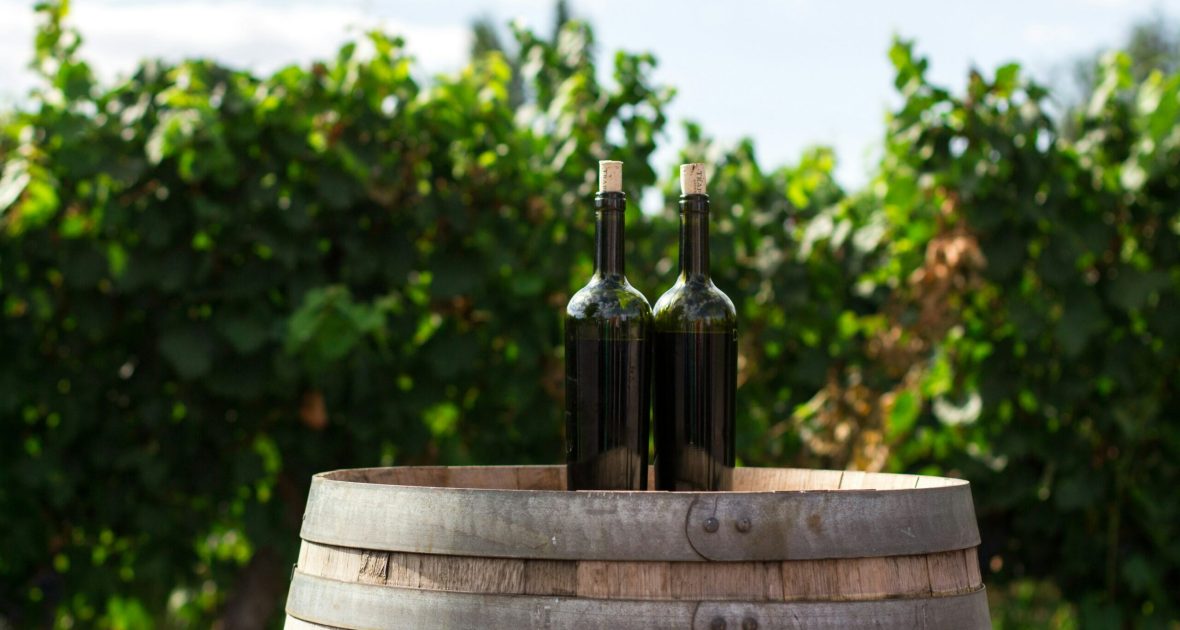
Kaleigh Swift
Kaleigh has been working with the France 44 events team since January 2023. She received her WSET 1-3 certifications through France 44. Kaleigh also works in communications at the University of Minnesota. In her free time, she enjoys playing and watching volleyball, spending time with her cats, and working on house projects. Kaleigh is an avid vermouth fan and never misses an opportunity to introduce someone to Spanish-style sweet vermouths!
If you read part 1 of this blog post duo, you’ll know a bit more about the early history of fermented alcoholic beverages in pre-colonial Africa, along with some mentions of the first Black viticulturists and vinters in the United States.
Now, we can look more at the “why” behind that history, to help make sense of how we got to today, where Black presence in wine is becoming more visible. This post will look more closely at false stereotypes, Black perceptions of wine, and on my own personal experiences as a consumer and professional in the industry.
While researching the origin of the stereotypes I mentioned last week, which assert that Black people don’t like fuller-bodied, complex wines, I ran into quite a few interesting finds. Several articles that re-affirmed these stereotypes with less than impressive lines of reasoning, some blog posts pushing back, and even a few published research papers.
Quite a few modern pieces hypothesized an explanation for these stereotypes that I think is logical. Racism and white supremacy is a socialization process and system of power that dehumanizes Black and indigenous people, erases their cultures and histories through colonialism, and insists that they are fundamentally incapable of producing complex and “civilized” societies. Through the normalization of these beliefs, especially in America, harmful stereotypes have emerged, rooted in the assertion that Black (and indigenous) people are too uncivilized to understand, participate in, or comprehend the complexities of society.
Black people, almost by default, get excluded from, or written out of wine history because acknowledging our ancestors and their contributions also forces society to reconcile with the fact that, as I mentioned last week, “undoubtedly, where grapes were grown and wine was produced in the new world, slave labor was being used to do so”. Black history and the history of wine are intertwined. We, in fact, are fully capable of understanding wine, having complex palates, and knowledgeably producing quality products.
Articles seeking to broaden the discourse on the Black experience in the wine industry often begin with personal narratives of authors encountering assumptions about their presence at industry events or being directed towards budget and sweeter products. These anecdotes underscore the persistent challenges of racism in the field.
And in my research for this blog, I started to question whether or not this stereotype I’ve been researching, the preference for sweeter wines like moscato among Black wine drinkers, actually existed, or whether it had in some way been manufactured by the industry insisting and marketing folks into believing that was the case.
On the one hand, let’s acknowledge that moscato is an easy drinking wine that is a great intro for folks who are new to wine, or just looking for something a little sweeter. On the other hand, that is the case for all people, not just Black people. And our ability to enjoy wine doesn’t stop at moscato alone, as evidenced by Mother Vines: A History of Black Women and Wine, a research project explaining over 400 years of documented history of Black women’s relationships to wine and exploring this intersectionality between race, class, and gender.
My own experiences of wine have included very little moscato that I can recall. Even prior to studying wine, I purchased primarily Pinot Noirs or Sauvignon Blancs. I was always willing to try new things and found wine to be utterly fascinating.
Some years ago, I started visiting my uncle regularly in the Bay Area, and one of our favorite things to do was go up to Napa wineries. It was during these visits that my journey to becoming a wine professional started. Not because I was in awe of the folks presenting us wines in Napa, but often because I felt like I wanted to know more and my inquisitiveness was often met with derision and hasty answers, lacking depth.
I’ve been fortunate enough to be nurtured by the wine professionals at France 44 who saw my interest as a positive quality and happily answered my questions throughout WSET (a wine certification program administered by France 44), and beyond. I am excited and proud to be Black in wine, and have found a lot of joy in this journey. Unfortunately, this is not the experience of many. We have a long way to go before people who have historically been written out of wine are able to be fully recognized and appreciated for their value and contribution to the industry.
Resources:
https://vinepair.com/articles/stop-telling-me-to-drink-sweet-wine-just-because-im-a-woman-of-color/
https://docs.lib.purdue.edu/cgi/viewcontent.cgi?article=1000&context=htmpubs
https://thesip.com/blogs/blog/yes-black-people-have-a-palate-too
https://vinepair.com/articles/wine-industry-black-consumers-marketing/
https://vinepair.com/articles/the-catch-22-of-drinking-while-black/
